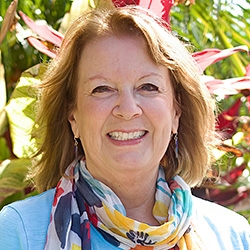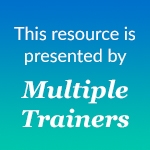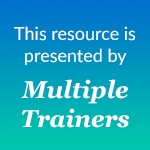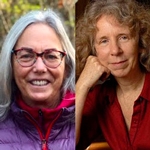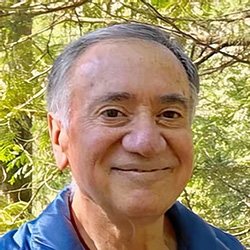

Search Results: practices
-
- Deepen your capacity for self-acceptance and self-compassion
- Bring greater compassion to your relationships
- Increase your capacity for vulnerability and mourning
- Enhance your sense of trusting your own place in life, as well as your purpose
-
Come. Let us journey together into our own authentic Life force: the essential living energy that permeates all of our lives.
Your journey will begin at the center: with the divine / life force, or soul force.
Robert Gonzales shares how this fundamental life energy is the tender expression of your inner being, or soul. It unfolds through the heart as your deepest longings, which manifest themselves in all forms of human needs and values. When you live from the energies of compassion, creativity, love, and clarity – while remaining wholly grounded and aware of needs and values – then you are living your passion… You are living the Self-In-Life.
-
- Understand the dynamics of power struggles
- Explore practical strategies for navigating power imbalances
- Discover ways you can share power in various relationships
- Explore how NVC supports a move away from domination, into shared power
-
-
Shifting to a needs-based perspective is one of the most powerful—and challenging—aspects of integrating Nonviolent Communication (NVC) into daily life. In this short video, Mary Mackenzie offers three simple, practical tips to help you cultivate needs consciousness and transform how you experience your world and relationships.
-
Read how an American Buddhist NVC teacher with Jewish roots reflects on how any dehumanization in the Israel-Hamas conflict can be used to justify all kinds of violence that can escalate for generations. With acknowledgment of the complexities, his desire is for us to bring in respect, dignity and peace -- for both Israelis and Palestinians. He emphasizes compassionate advocacy of all humanity amid the ongoing crisis.
-
- Dive deep into Peaceful Living: Daily Meditations for Living with Love, Healing and Compassion with the author
- A year-long container to reflect, realign, and return to what matters most
- Experience the combination of Mary’s wisdom, daily meditations, and community
- Enjoy accompaniment and loving support throughout 2026 with like-minded individuals
-
Trainer Tip: When we connect our feelings to our needs, we put ourselves in a postion to get our needs met and mourn when they aren't met. Here's a practical tip you can practice daily to improve the quality of your life.
-
-
Why is it so difficult to change our patterns even when we want to, even when we experience shame or despair about them? Arnina Kashtan offers some of the common pitfalls and concrete steps to overcome them in the future.
-
- Learn the essentials of NVC from its founder, Dr. Marshall Rosenberg
- Discover how to connect with others with empathy, integrity, and peace
- Understand the origins of NVC and how to apply it within yourself and in your life
- Experience how empathy supports healing in your most intimate relationships— and in the world at large!
-
Listen to this newly remastered audio with seasoned Life Coach and CNVC Certified Trainers Martha Lasley and Dian Killian, to explore how you can "be the change" in your life, to live fully in integrity with your values in your work, community, faith and social action groups.
-
Join CNVC Certified Trainer Arnina Kashtan as explores interdependence, autonomy, valuing self and others, and power-sharing in your relationships. Free yourself to honor your longing for community, belonging, and love.
-
NVC Mingle is a fun group exercise to practice NVC principles and create quick connections with others.
-
- Easier and steadier access to presence, awareness and self-connection in relationships and challenging situations
- Illumination of basic Buddhist and NVC principles
- A deeper understanding of how to live the Buddhist precepts of non-harming, mindful speech and deep listening
- An introduction to useful tools for families and communities to create a culture of Nonviolent Communication
-
Dear friends,
This morning, I woke up thinking about a poignant moment from a few years ago. My wife, Kim, and I were driving down a busy 4-lane road, and we were in a hurry to get somewhere important. Then we saw a mama duck with many small ducklings trying to get across the street. Kim pulled over, and we both hopped out to stop 4 lanes of traffic so Mama Duck could get across with all her ducklings. The last one had some kind of injury, so it took a very, very long time for all of them to make it across.
-
While we can’t control other’s behavior, we can choose how we show up. With forethought and care, we can approach interactions with more clarity, love, and skill. Read on for practices that include: Choose wise attention, ask better questions, practice deep listening, structure the conversation, know your limits, speak your truth, share your personal stories, be present and recall permanence.
-
- Start here to discover how Nonviolent Communication (NVC) will enrich and deepen all your relationships.
- You'll love this practical and enlightening approach to empathic listening and effective self-expression.
- Learn on your schedule with self-paced learning modules in this 30-day program.
-
We can shift from being absorbed and identified with our inner chatter and feelings to being the space of awareness of these things. Observe your breath. Then observe your mind generating thoughts. Next, feel sensations of your body, particularly the difficult ones. Now, connect with the underlying energy of needs. Ask your unconscious mind for universal needs words related to what you now notice, think and feel.
-
- Explore the spiritual foundations of NVC
- Witness transformational and healing processes led by Robert Gonzales
- Learn from the questions proposed by participants
- Gain processes that support a consciousness of the “Beauty of Needs”

Quick Links
Subscription Preferences
Stay In Touch!
Looking for ways to keep up with NVC Academy news, get special offers, free resources, or words of inspiration? Here are five ways to stay engaged:







